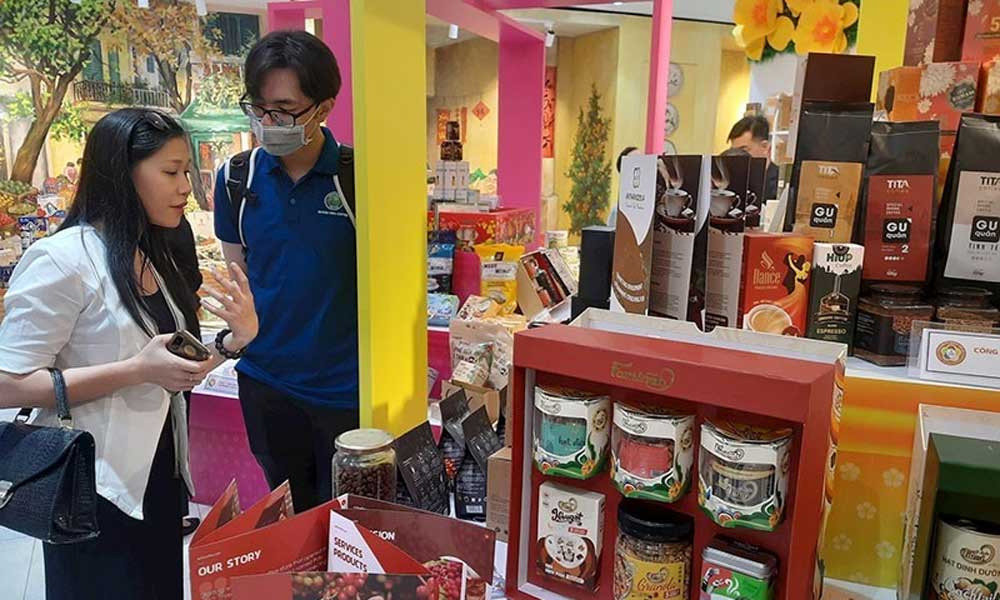Vietnam sees golden opportunity from cross-border e-commerce
Cross-border e-commerce is set to become one of the strategic pillars in Vietnam’s national master plan for e-commerce development during 2026–2030, as the country looks to build a sustainable digital export ecosystem and enhance global competitiveness for its businesses.
Cross-border e-commerce is set to become one of the strategic pillars in Vietnam’s national master plan for e-commerce development during 2026–2030, as the country looks to build a sustainable digital export ecosystem and enhance global competitiveness for its businesses.
 |
|
Illustrative photo. |
Speaking at a forum on Vietnam’s e-commerce and cross-border e-commerce Outlook held recently, Nguyen Thi Hoai An, Vice President of the Global Alliance for Cross-Border E-Commerce (ACBC Global) and Chairwoman of ACBC Vietnam, stressed that cross-border e-commerce is not only the new infrastructure of global trade but also an “extended arm” of globalisation, enabling products and values to circulate without borders.
With the global market estimated at nearly 800 billion USD in 2024 and growing over 30% annually, cross-border e-commerce has become an inevitable trend for all nations and enterprises.
According to An, Vietnam is now in its “golden moment” to accelerate in this sector thanks to strategic advantages such as its location as a potential regional logistics hub, abundant raw materials, a young workforce, and rapid digital transformation capacity.
Xiao Qiuli, General Director of the Guangdong Global Shopping E-Commerce Co. Ltd. (GGBingo), said that Vietnamese firms can leverage cross-border e-commerce models to strengthen competitiveness and expand coverage by tapping into platforms such as Amazon, TikTok Shop, Lazada, Shopee, and JD.com. This will help optimise revenue and global reach.
To effectively export through cross-border e-commerce channels, Vietnamese businesses need thorough preparation. Products must meet high quality standards with transparent origins, while obtaining reputable international certifications will help build trust and win over global consumers.
For small and medium-sized enterprises (SMEs) with limited capital and production scale, Vu Xuan Linh, Director of Strategic Partnerships (Vietnam) at Singapore’s Sea Group, suggested ASEAN as the “digital frontier” for Vietnamese SMEs, cooperatives, and household businesses.
ASEAN, which is currently Vietnam’s fourth-largest export market with trade turnover of 37 billion USD in 2024, is projected to reach a cross-border e-commerce market size of 330 billion USD in 2025.
The bloc is not only a dynamic region with the growing purchasing power but also a proven market for Vietnamese goods, particularly in Singapore, Thailand, and Malaysia.
Through programmes like the Shopee International Platform (SIP), more than 350,000 Vietnamese SMEs have already exported online, utilising integrated logistics, payment, and customer service systems to “sell globally from home.”
Investment in international logistics and human resource training for CBEC is expected to be a decisive factor in enabling Vietnamese goods to expand further and join global supply chains more deeply.
For new exporters, platforms such as Miss Linh – founded by a Vietnamese entrepreneur in the Netherlands in 2023 – are opening doors to Europe. The platform currently supports over 25 Vietnamese food brands in reaching European consumers.
However, Nga Dang, founder of Vietnam Food Europe B.V., emphasised that success requires strict compliance with European market standards.
Meanwhile, China, a billion-consumer market long targeted by Vietnamese exporters, has its own requirements.
Dr. Chen Jia, a specialist representing the national eco-product certification system under China’s Forestry and Environment Promotion Committee, highlighted that the PEOP certification, which integrates digital tools such as QR codes and AI, serves as a “green passport” for Vietnamese products like coffee, cashew nuts, durian, and dragon fruit.
This certification enhances brand positioning, builds consumer trust, and boosts sustainable export growth via cross-border e-commerce channels.
 Bắc Ninh
Bắc Ninh












Reader's comments (0)